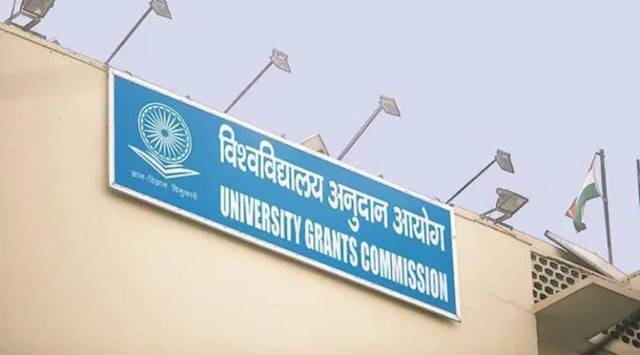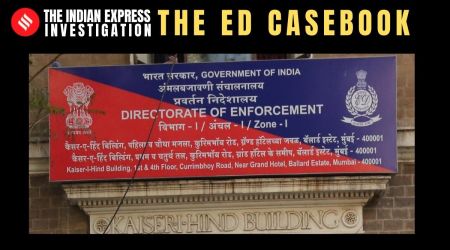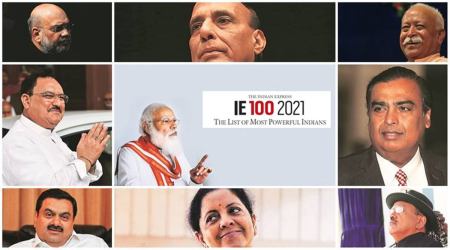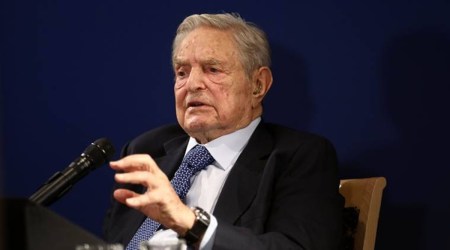Why the delay in IOE scheme: Old expert panel out, no sign of new; new education policy casts a shadow
However, the EEC has been inactive for the past two years because the last committee, led by former Chief Election Commissioner N Gopalaswami, completed its three-year term on February 20, 2021.
 Asked about the delay, UGC Chairman M Jagadesh Kumar said that the regulator has no role in the formation of the EEC. “It can only notify the names forwarded by the Government,” he said.
Asked about the delay, UGC Chairman M Jagadesh Kumar said that the regulator has no role in the formation of the EEC. “It can only notify the names forwarded by the Government,” he said.AT THE heart of the delays affecting the Institution of Eminence (IOE) scheme is a defunct Empowered Expert Committee (EEC), which was first created to cut red tape and make UGC regulations more flexible for the 20 selected institutions.
However, the EEC has been inactive for the past two years because the last committee, led by former Chief Election Commissioner N Gopalaswami, completed its three-year term on February 20, 2021. Since then, the Government has not appointed new members or extended the term of the Gopalaswami panel, leaving the IOE notification of at least four private and two public institutions hanging.
The Indian Express has learnt that Gopalaswami had written a letter to the Education Ministry in 2021 reminding the Government of the approaching end of the panel’s three-year term. But no decision has officially been taken on the file moved for reconstitution of the panel, sources said.
“A letter would have been written in the normal course (reminding the Government of the committee’s term ending). It would have been done by the office. I don’t remember exactly when, but it would have been done,” Gopalaswami told The Indian Express.
Asked whether the absence of an EEC affects the progress of the IOE scheme, he said, “I have no opinion on this. It’s for the Government to decide whether they want to have it (EEC) or not. I have no locus in the matter since my term as chairman has already ended.”
According to Clause 7.1 of the IOE Regulations 2017, the members of the EEC are appointed by the UGC on the advice of the Government, which sends names to the higher education regulator after taking approval of the Appointments Committee of the Cabinet.
Asked about the delay, UGC Chairman M Jagadesh Kumar said that the regulator has no role in the formation of the EEC. “It can only notify the names forwarded by the Government,” he said.
The Education Ministry did not respond to a questionnaire sent by The Indian Express about the absence of a functioning empowered committee. Education Minister Dharmendra Pradhan was not reachable for comment.
“When the IOE Regulations were created, the National Education Policy was still being developed. With the NEP now in place, the idea of autonomy is embedded in the philosophy of the proposed Higher Education Commission of India, the new higher education regulator. The 12 institutions that have received IOE status will continue to have it. Rather than establishing another EEC, the proposed HECI could be responsible for liberalising the regulatory system. For the others that have not yet been notified as IOEs, we will make a decision after the new regulator is established,” said a Government source.
The EEC is unlike any routine selection panel appointment by the government. “The word empowered is in the name of the committee. This panel was meant to be the driving force of the scheme and key to its success. Not only was it empowered to search and select the 20 IOEs but also monitor and review their progress, recommend penalties and have the final word on all issues not covered in the regulations,” said a source who was involved in the drafting of the regulations in 2017.
“The rationale behind creating an empowered body was that the scheme should be driven by a committee of renowned people because it was felt that the UGC had a controlling mindset and may not serve the objective of the IOE scheme which was to give these 20 institutions more autonomy. So the UGC’s role was minimised and limited to forwarding recommendations of the Empowered Expert Committee,” said another source involved in the drafting of regulations.
In this context, a search panel headed by the Cabinet Secretary at the time had recommended names of Gopalaswami, Professor Tarun Khanna of Harvard Business School, Renu Khator of the University of Houston and former director of IIM-Lucknow Pitam Singh. The committee was notified by the UGC on February 20, 2018.
After Singh’s death in June 2020, Gopalaswami had written to the Government requesting a replacement but it wasn’t done. Eight months later, the term of the EEC expired. When contacted, Khator did not wish to comment on the matter, and Khanna did not respond to an email seeking his views on the delay.




































